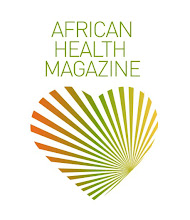
"you are what you eat” applies to overall health and nutrition and how the skin looks and feels. The skin is the largest organ in the body and should benefit from the same nutrition we get from foods that have a positive effect on our heart and other major organs. New research suggests that eating foods rich in protein and certain vitamins and minerals might provide valuable anti-aging effects.
Eating well and drinking plenty of water will help your skin, as well as the rest of your body, stay healthy. But can certain nutrients help prevent skin problems, such as dryness or loss of elasticity? And how much is too much?
Vitamin A
Best bets:
sweet potatoes, tomato sauce, liver, eggs, milk
Also found in:
orange, red and yellow fruits and vegetables, such as mangoes, apricots, pink grapefruit, tomatoes, asparagus; green leafy vegetables, such as spinach and broccoli
Essential for:
antioxidant properties, which help reduce the risk for certain diseases, including cancer, and help fight and prevent infection; growth and repair of cells, tissues and skin; relieving allergy symptoms.
When lacking, can cause: dryness, itching and loss of skin elasticity
B Complex Vitamins (riboflavin, niacin, B-6, B-12 and biotin)
Best bets:
whole grains and whole-grain cereals; enriched and fortified grain and cereal products
Also found in:
rice, wheat germ, oatmeal, sunflower seeds, fish, eggs, almonds, liver, yeast, low-fat dairy products
Essential for:relieving dryness and itchiness; easing stress
When lacking, can cause:
dry, flaky, sensitive skin; eye disorders
Riboflavin (B2)
Best bets:
whole grain and enriched breads and cereals; milk and other dairy products; meat and organ meats; eggs; nuts; green leafy vegetables
Niacin
Best bets:
whole-grain, enriched and fortified breads and cereals; poultry, fish, beef, peanut butter, legumes, enriched and fortified grains and grain products
Note:
Too much niacin, typically as a result of supplements, can cause flushed skin, rashes and liver damage.
B-6 (pyridoxine)
Best bets: organ meats, chicken, pork, fish, whole grains, nuts, legumes
B-12 (cobalamin)
Found in:
fish, milk and milk products, eggs, meat, poultry, fortified breakfast cereals
Note:
Certain people may be at risk for B12 deficiency and should speak to a physician or dietitian before using a supplement. They include adults over 55, those with pernicious anemia or gastrointestinal disorders, and vegans (vegetarian who eats plant products only).
Biotin
Best bets:
eggs, liver, yeast breads, cereals
Vitamin C
Best bets:
citrus fruits, berries, red bell peppers, broccoli
Also found in:
potatoes, garlic, onions, dark green and green leafy vegetables (spinach, parsley), apples, cabbage, tomatoes, sprouts, melons
Essential for:
antioxidant properties; antihistamine effects; fighting skin infections and healing wounds; producing collagen and elastin for firm skin; healthy gums and firm capillaries
When lacking, can cause: scurvy; loose teeth and swollen gums; excess bleeding; wounds that won't heal



No comments:
Post a Comment